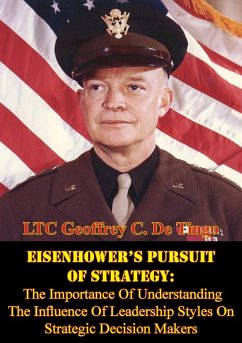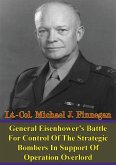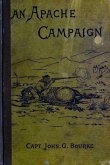Eisenhower preferred to build consensus for his military and national strategies by using multiple communication techniques to convey his intent. If consensus was not achieved, though, and his intent was not carried out he would aggressively move to eliminate the source of friction. This monograph will analyze four case studies to demonstrate that it is critically important for subordinates and peers to understand the influence of leadership styles on strategic decision makers. It will also argue that the consequences for not understanding strategic decision makers can mean the difference between individual, organizational or national success or failure.The four case studies will highlight the leadership styles that Eisenhower used when he pursued a strategy and how those leadership styles influenced his decision-making. The first case study is Eisenhower's fight to control Allied strategic bombers to support Operation Overlord in 1944. Second is his fight to develop, implement and defend his New Look National Security Strategy in 1953. Third is how Eisenhower defended his administration's Middle East foreign policy and finally his strategy to seek a peaceful solution to the Suez Canal Crisis of 1956.
Dieser Download kann aus rechtlichen Gründen nur mit Rechnungsadresse in A, B, BG, CY, CZ, D, DK, EW, E, FIN, F, GR, HR, H, IRL, I, LT, L, LR, M, NL, PL, P, R, S, SLO, SK ausgeliefert werden.









